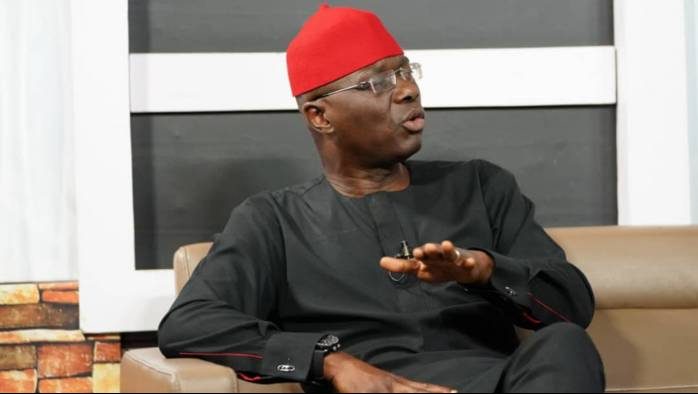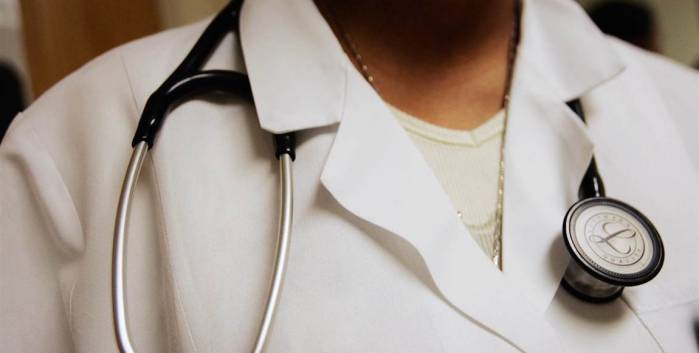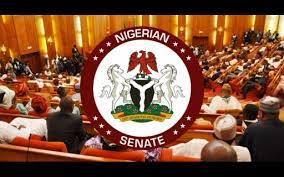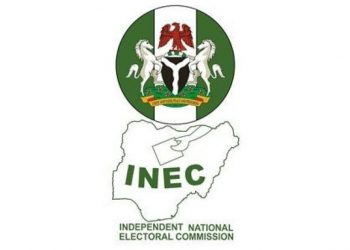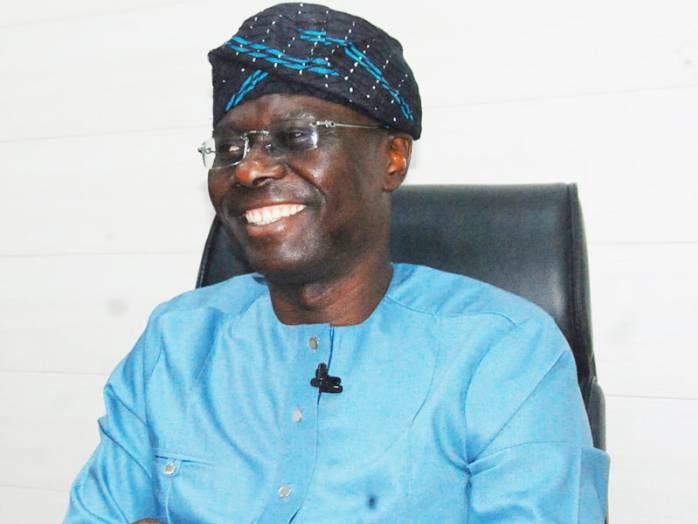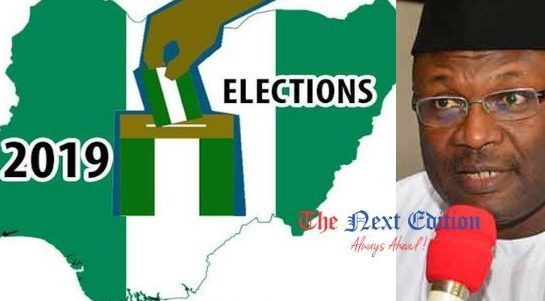Mr. Babajide Sanwo-Olu, Lagos State governor, has restated its commitment to deliver reliable, efficient, safe and effective intermodal transport system that will enhance mass movement of Lagosians.
This will be done through the expansion of BRT routes and completion of rail and water transportation infrastructure in the state.
Sanwo-Olu stated this on Thursday while delivering the keynote address at the 4th Lagos Traffic Radio Lecture Series held at the Radio Lagos/Eko FM Multi-purpose Hall, Agidingbi-Ikeja, with the theme, ‘Lagos Beyond Roads: The Intermodal Transport Option’.
The governor, who was represented by the Deputy Governor, Dr. Kadri Obafemi Hamzat, disclosed the state government’s commitment to fund to completion, the 27.1km Blue Rail line from Okokomaiko to Marina, adding that the state is already partnering with the Federal Government through the Nigeria Railway Corporation (NRC) on sharing the alignment on the Lagos-Ibadan project which substantially fall on same alignment with the Red Line.
He said the state government would open up the space for the participation of local and international investors and stakeholders, in order to actualize the Red Line which is a 31km line from Agbado to Marina and a 6km spur from Oshodi to Muritala Muhammed Airport.
According to the governor, the federal government would build stations at Agbado, Agege and Ebute Meta, while the Lagos State Government will build the Iju, Mushin; Oshodi; Ikeja; Yaba and Oyingbo.
He noted that the current traffic situation in the state indicates that 95% of transportation is done by road and therefore the need to reduce the number of cars on the road and provide alternative options which are rail and waterways transportation that is efficient and safe for Lagosians and those that choose to visit Lagos.
While stating that the water transportation sector will receive lots of attention, Sanwo-olu disclosed further that his administration in the last few weeks has had promising discussions with various groups of investors who had expressed their intention to invest in the water transportation subsector, which has been under-utilised in terms of harnessing its economic potentials.
The governor revealed further that as the state government sustains its current advocacy on the need for compliance with traffic rules and regulations in the state, it will embark on the completion of ongoing critical road infrastructure projects and initiate new ones as the rains subside.
He added that the palliative work being executed by the Lagos State Public Works Corporation which involves covering of potholes is to alleviate the pains being experienced and reduce the man-hour being lost every day in the process of commuting from one point to another.
He restated the determination of government to reduce traffic time along the Ikoyi-Lekki and Victoria Island axis, adding that “traffic study is ongoing on Lekki-Ikoyi Link Bridge and Lekki-Epe expressway which will assist our decision on electronic payments on the two plazas before the end of the year.”
Earlier in his presentation, the lead speaker, former Minister of Works, Power and Housing, Mr. Babatunde Raji Fashola (SAN), stated that successive administrations in the state have done a lot on intermodal transport system but there is the need for more to be done.
He said that the administration of Alhaji Lateef Jakande under which the Late Alhaji (Dr.) Muftau Hamzat was the Commissioner for Transportation, the ferry system was functional and Lagos Metroline was conceived.
Fashola, former Lagos State governor, described traffic in Lagos as a blessing and a burden, stating that “as a cosmopolitan city, traffic is inevitable and a blessing because it brings about employment such as licensing, parking and ticketing.”
He, therefore, called on the state government to, apart from the palliative work/resurfacing presently done on roads, focus on rehabilitation of roads in the central spine of Lagos. These are clusters of roads like Lagos-Badagry Expressway, Third Mainland Bridge; Apapa-Oshodi-Oworonshoki Expressways Road, Lekki-Epe Road, Ikorodu-Mile 12- Funsho Williams Road and Agege Motor Road.
He said: “If these roads move, Lagos will move,” adding that “if roads in these areas are fixed, Lagosians will have a reduction in traffic gridlock.”
He also suggested that the state government needed to ensure it increased transport education among citizens in the state as he charged the Lagos traffic radio to come up with educational programmes to educate Lagos road users.
